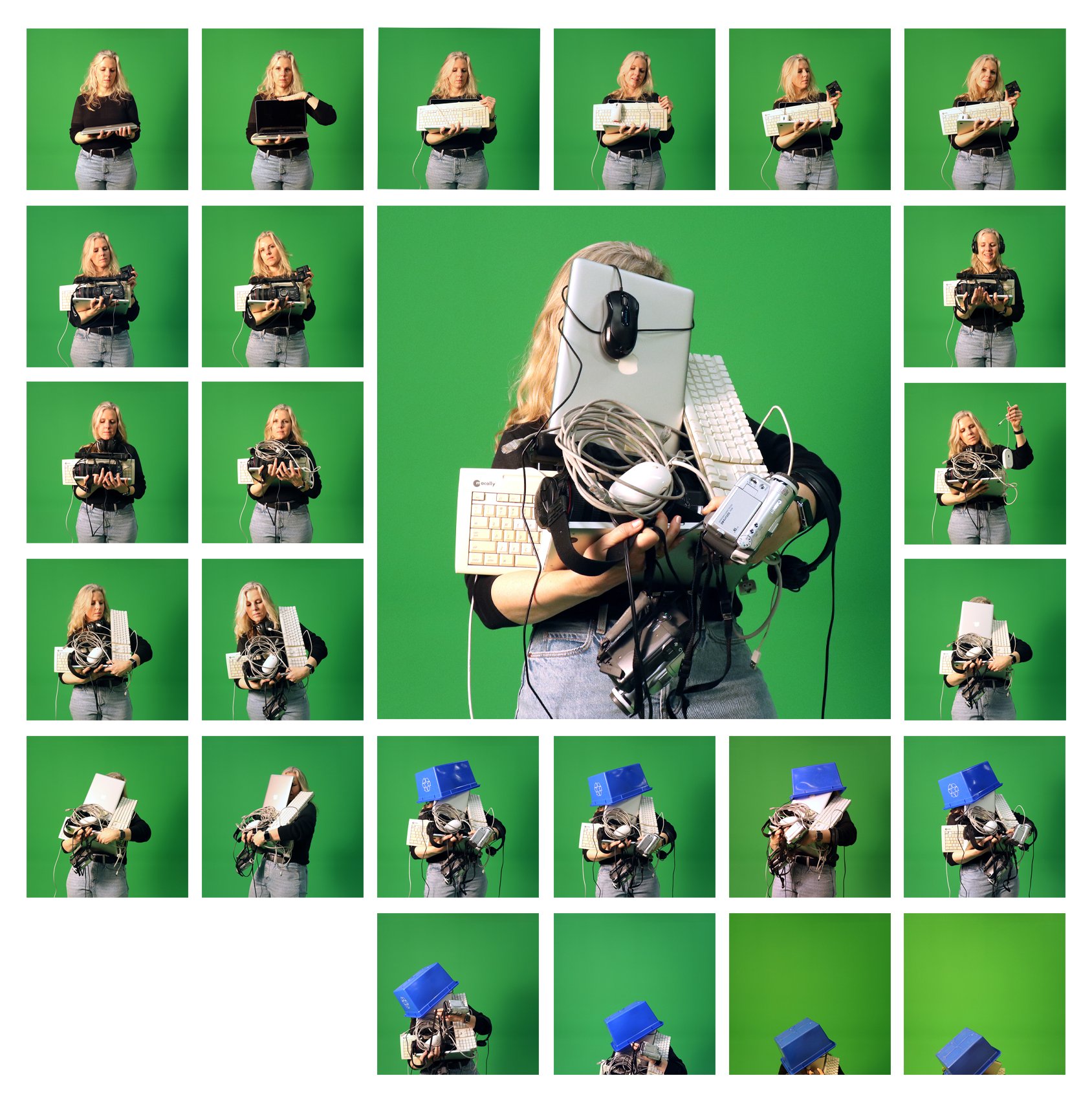Reese Muntean, PhD. Congratulations!
Cyborg self portrait, Reese Muntean 2024.
Our enormous congratulations to Dr. Reese Muntean, who successfully defended her PhD Dissertation “Sustainable Realities: A Visual Multi-Sited Exploration of Sustainability in and of Virtual Reality and Immersive Video” on Dec. 17th, 2024. Reese has contributed to numerous Making Culture Lab and SIAT projects during her time as a Masters’s and PhD candidate, and left an indelible mark with as an artist, researcher, and community leader. We are so excited for you Reese and what lies ahead for you!
“Sustainable Realities: A Visual Multi-Sited Exploration of Sustainability in and of Virtual Reality and Immersive Video”
Supervisor: Dr. Kate Hennessy
Committee Member: Dr. Alissa Antle
Committee Member: Dr. Will Odom
Examiner: Dr. Gillian Russell
External Examiner: Dr. Mark Westmoreland (Leiden)
Abstract
New technologies show promise for cultural and environmental sustainability, yet the processes of production, use, and disposal of digital devices involve the exploitation of natural resources and human labor and have dramatic impacts on social systems and people’s lives. This cumulative thesis presents research that explores the use of 360° video as a specific technology for sustainability, as well as the sustainability of such technologies in academic research, through a series of international case studies and photo essays: Salak Yom explores the use of 360° video for the safeguarding of cultural heritage in Northern Thailand,SCP in 360°describes the design and evaluation of a series of 360°videos I produced forUnited Nations sustainability communication, and Digital Devices in Academic Research examines the sustainability practices, policies, and procedures related to360°video and other research technology in a university system. These three cases studies use multi-sited multimodal anthropology andresearch-creation as methods to contribute to the field of sustainable human-computer interaction.This research addresses the overall question, How can anthropologists, media makers, and human-computer interaction researchers better understand sustainability through their practices and engagements with 360° video and the technology it entails?
This dissertation presents a visual, multi-sited ethnography following 360° video through its application in a cultural context, in the communications of an international organization, and as a research tool in a university setting.Individually, the case studies describe insights and limitations of 360° video for safeguarding cultural heritage, develop design implications for 360° video projects generally as well as for sustainability-focused interactive media, and make recommendations for university-level approaches to support sustainable technology practices. Collectively, the case studies and accompanying photo essays in this dissertation show how sustainability can be better understood through the specific technology of 360°video as well as through the sociotechnical systems in which people live and work.





